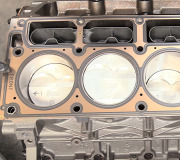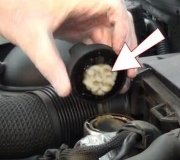Chevy Astro Van with that many miles on it, and the damage you report it has. A blown head gasket can prevent the engine from running. There would be damage to camshaft and pistons with that much water. If it is leaking that much water into the cylinder it would prevent the engine from running. I my opinion there is too much damage to your engine. If it was me I would replace the engine with a rebuilt or a crate motor from GM. The rebuilt may be the less expensive
Here is more information:
A blown head gasket can indeed cause engine issues and may result in the engine running poorly or not starting at all. A blown head gasket can lead to compression loss between cylinders, coolant leakage into the combustion chambers, or oil and coolant mixing together, which can affect engine performance and cause rough running.
When water enters the oil system, it can lead to several potential problems. Water does not provide proper lubrication like oil does, which can cause increased friction and wear on engine components. Additionally, the presence of water in the oil can lead to corrosion and damage to internal engine parts, including the crankshaft, pistons, and bearings.
Overheating can cause significant damage to the engine and its components. It can result in warping or cracking of the cylinder heads, which may require replacement. Overheating can also damage other parts of the engine, such as the valves, cylinder walls, and gaskets.
Deciding whether repairing an engine with high mileage is worth the cost depends on various factors, including the overall condition of the vehicle, its maintenance history, and your future plans for the vehicle. It may be helpful to consider the value of the vehicle and compare the repair cost to the cost of purchasing a replacement vehicle. Consulting with a trusted mechanic can provide further insight into the overall condition of the engine and help inform your decision.
Please let us know if you need anything else to get the problem fixed.
Tuesday, April 7th, 2009 AT 5:01 PM



